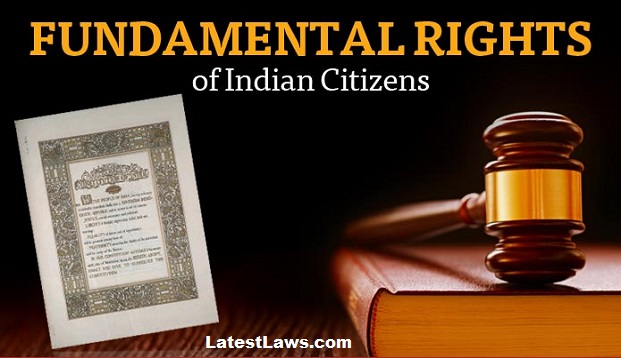August 11, 2018:
The Author, Mansimran Kaur, is a 1st Year Student of BALLB, Chandigarh University.
Our Constitution is based on the principle of equal citizenship, protecting the rights of an individual through fundamental rights guaranteed in Part-III of the Indian Constitution. However, seeing past atrocities being committed against certain identities urged the constitution makers, specifically Dr. B.R. Ambedkar, to insert articles which protect the culture and speech of these minority groups.
At times, there comes a point of friction between fundamental rights guaranteed to individuals against the rights guaranteed to group identities. The latter supersedes the former in such a way that the former is struggling to find its relevance and freedom. One such controversial article is Article 26 which states: “Group identities have rights to manage their own affairs, including the right to excommunicate a person.”
Religion plays a substantive role in a nation like India, giving identity to an individual. Moreover, it has also played a negative and much relevant role in denying basic civil and economic rights to certain group identities. Thus, in India, religion cannot be without reasonable state interference. This is the very reason why the judiciary, time and again, must mediate the tussle between the group rights against individual rights as the extent and situations in which these group rights can be exercised is undefined.
The basis of excommunicating is completely gender-biased in most cases. From instant Triple Talaq to female genital mutilation to the Goolrukh Gupta case in 2017, the rights of women have been completely suffocated. The right to freedom of religion under Article 25 is always found at the mercy of Article 26.
Evolution of the phrase “essential religious practices” Infringement of individual’s right to freedom of religion was accepted as a natural outcome in the case of Sardar Saifuddin Saheb vs State of Bombay 1962 in which a provision of the Bombay Prevention of Excommunication Act 1946 was struck down by a five-judge bench.
Shielding unjust practices of the group rights under the blanket of the phrase, “essential religious practices” has been often criticised over years. Gradually, the judiciary started pronouncing judgements pertaining to group rights with a different perspective altogether. Interpretation of the phrase was not just limited to the practices “essentially religious”, rather questioning whether the practice is “essential to religion” and if yes, does it meet the reformist requirements of the constitution?
The High Court of Rajasthan held that Jain religion’s practice santhara – voluntary and systematic fasting to death was illegal since it amounted to abetment of suicide and cannot be found in any scriptures, articles and preaching thus, concluding it to be not an integral part of the religion.
The Hon’ble Supreme Court, in the case of Goolrokh Gupta vs Burjor Pardiwala and Others, held a landmark judgement in the favour of Gupta by quashing the Gujarat High Court order. It ruled that marrying outside her community does not infringe her right to profess her religion and her right to enter Parsi temples or performing the last rites of her father since marrying under the Special Marriage Act retains the original identity of an individual and does not engulf it. Moreover, excommunication on the basis of marrying a non-Parsi is not a practice essential to sustain the identity of a group.
The Sabarimala Temple denying the entry of women in a place of worship is a violation of Article 14 of the Constitution, Article 17 and restriction on female autonomy In justification of the ban on the entry of woman the defence taken by the religious groups was that of Article 26 (Right of religious groups to manage their own affairs).
The Supreme Court has countered the defence by stating the limitations of morality, public order and health on Article 26 making it a non-absolute right.
Thus, the tug of war between the individual’s fundamental rights and the group rights is a real struggle for the Indian Judiciary. The purpose of the religious groups should be to protect individual rights better from unreasonable state interference and to protect religious denominations from being engulfed by the majority. Therefore, the right to excommunicate an individual under Article 26 of the Indian Constitution should be struck down or the article should be amended in a way which clearly defines the scope of group rights, situations where the group rights are in a conflicting zone with individual’s fundamental rights and lastly the basis of excommunication should be essential in maintaining the group’s identity.
Picture Source :

























